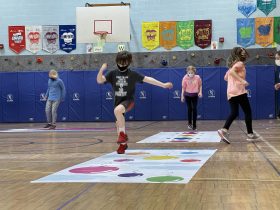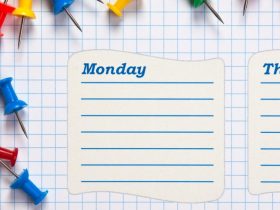Literacy skills are essential for success in both academic and professional pursuits. While early childhood literacy is often the focus of educational programs, older students, including those in middle and high school, also need targeted support to develop and strengthen their literacy skills. This framework aims to provide educators, parents, and tutors with a structured approach to enhance the literacy skills of older students, incorporating elements of math tutoring and primary tutoring when necessary.
Understanding the Challenges
Before diving into the framework, it’s crucial to understand the challenges older students face in developing and maintaining their literacy skills. These challenges can include:
- Content Complexity
As students’ progress through the education system, the complexity of the content they encounter increases significantly. This can pose a barrier to understanding and retaining information.
- Time Management
Older students often have multiple subjects and extracurricular activities, making it challenging to allocate sufficient time for literacy development.
- Technological Distractions
The ubiquity of digital devices can lead to distractions that hinder reading and writing habits.
The Framework
- Diagnostic Assessment
Begin by assessing the student’s current literacy level. This assessment should cover reading comprehension, writing skills, vocabulary, and grammar. Identify specific areas where the student needs improvement.
- Individualized Learning Plan
Based on the assessment results, create a personalized learning plan tailored to the student’s needs and goals. If math tutoring or primary tutoring is required, include these elements in the plan to address any gaps in these subjects.
- Regular Reading Practice
Encourage daily reading habits by providing a variety of age-appropriate texts, including fiction, non-fiction, and articles related to their interests. Discuss the material to ensure comprehension.
- Writing Exercises
Assign writing tasks that challenge students to articulate their thoughts clearly and coherently. Review and provide constructive feedback on their writing, emphasizing grammar and vocabulary.
- Vocabulary Building
Introduce new words regularly and encourage the student to incorporate them into their writing and speaking. Create flashcards or word lists for review.
- Math Integration
If maths tutoring is also required, find opportunities to integrate math concepts into literacy activities. For instance, students can write mathematical explanations or solve word problems involving literacy topics.
- Primary Tutoring Integration
For older students who may still need primary tutoring in foundational subjects, coordinate with primary tutors to ensure a comprehensive approach to their education. Addressing primary skills gaps can help students excel in literacy as well.
- Digital Literacy Management
Help students develop digital literacy skills, teaching them to use technology as a tool for learning rather than a distraction. Show them how to access online resources, eBooks, and research materials.
- Time Management
Assist students in creating a schedule that allocates time for literacy development alongside other academic and extracurricular commitments. Teach effective time management skills.
- Goal Setting and Monitoring
Set clear, achievable goals with the student, and regularly monitor progress. Celebrate milestones and make necessary adjustments to the learning plan as needed.
Supporting Older Students
Building older students’ literacy skills is a collaborative effort involving educators, parents, and tutors. Here are some additional strategies for support:
- Parental Involvement
Encourage parents to engage in their child’s literacy development by reading together, discussing books, and providing a quiet space for studying.
- Tutoring Services
Consider enlisting the help of a professional tutor, especially if maths tutoring or primary tutoring is required. Tutors can provide specialized guidance to address specific skill gaps.
- Peer Support
Promote peer tutoring or study groups where older students can help each other with their literacy and math needs. This can foster a sense of camaraderie and motivation.
Conclusion
Building literacy skills in older students is a critical Endeavor that requires a comprehensive framework. By conducting diagnostic assessments, creating individualized learning plans, and integrating math and primary tutoring when necessary, educators, parents, and tutors can support students in their journey to becoming confident and proficient readers and writers. Through consistent practice, goal setting, and collaborative efforts, we can empower older students to excel academically and thrive in an increasingly literate world.









